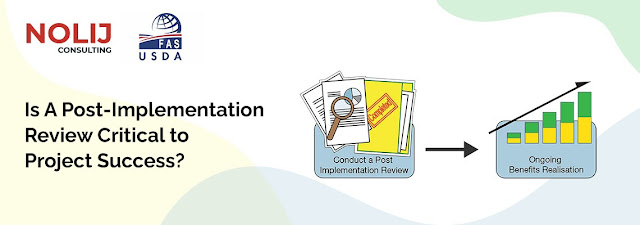The use of AI and robotics in healthcare industry
With the help of AI, it is now possible to process all kinds of information in a very short period of time. It has become a necessity in many industries where companies are looking for ways to make their work more efficient.
Humans can't process data as fast as AI. This means that machines are filling in the gaps. One of the many examples of this is that an AI machine processes hundreds of days worth of information in just one day. This is why having at least one AI writer assistant can save you years over your lifetime, allowing to focus on other aspects of your life instead!
Artificial Intelligence is nothing new to the world of supply chain. In fact, AI has always been a part of supply chains, but it has only recently been applied to procurement management in healthcare systems.
The use of ai and robotics in healthcare industry is revolutionizing the world. AI's ability to learn and adapt over time has helped enable medical professionals to spend more time on patient care and less on routine tasks. It has also reduced the need for human input, which saves money, improves efficiency, and decreases errors. A recent study estimated that in the average year, an HR department spends $23,000 on recruiting. This is obviously a huge cost for just a single department. These AI systems can help cut down on recruitment costs and help companies save money. AI has a multitude of benefits to healthcare organizations, one of which is its ability to produce detailed reports on the procurement processes. Many health facilities have begun the use of ai and robotics in healthcare industry in order to control costs and improve the patient experience.
A rapidly evolving science
HealthIT is a complex industry, with multiple transactions taking place. To make informed, critical decisions regarding cost savings and maximizing efficiencies, healthcare providers must have access to accurate and up-to-date information. In order to provide this data in a timely manner, several key systems are implemented such as enterprise resource planning (ERP) software that allows for data retrieval, analytics & more.
With the rise of artificial intelligence in the world, it has become more imperative for companies to implement AI-driven technologies to improve their business. Artificial Intelligence has been an integral part of healthcare since the early 2000's. There are many reasons why AI is used in the healthcare field, but one of the most important is that it reduces costs and improves efficiency. In this complex and ever-changing environment, hospitals must be able to make a critical decision about how to allocate resources effectively. The introduction of AI has impacted how hospitals use their resources. Artificial intelligence is improving the healthcare industry and leading to process improvements by performing tasks in a more efficient manner and with fewer errors.
With incredible speed, AI has been evolving in leaps and bounds, to the point where it is now the largest contributor to scientific progress in the world. While still new, AI has already led to a number of revolutionary changes in everyday life. Scalable AI tools are ushering in a new era of healthcare. They help healthcare systems optimize their resources and tighten their supply chains by identifying opportunities for cost savings and efficiency. They can do this because they analyze the complete data set for each individual patient, which is not possible with other methods such as traditional analytics. The advent of AI writing assistants has changed the world of copywriting across all sectors. The benefits are numerous and include improved efficiencies, streamlined processes, reduced regulatory burdens, higher employee satisfaction, and time and money saved.
The invention of AI has saved billions of dollars in the past decade alone. It has allowed businesses to significantly cut down on hours spent on tedious and repetitive tasks by replacing them with more efficient processes. The AI platform has the ability to scan millions of structured and semi-structured acquisition data to identify and categorize like items, compare pricing and availability, and confirm the most effective way of buying. Artificial intelligence is a recent and rapidly expanding technological field. This field has promised to revolutionize many industries, including the medical, financial, and retail sectors.
Natural language processing is the ability to process text and extract knowledge by analyzing its linguistic structure. This technology is not only transforming the way people communicate, but it can also help businesses analyze their data more efficiently.
Deep learning algorithms are capable of creating language that is not only structured, but also unstructured. These translation programs can take text from any language and transform it into understandable English that is personalized to the individual.
In today’s market, companies are struggling with how to compete in the ever-changing landscape of human centered design process services. Custom-built fields that handle and process acquisition data from various sources and format types to create actionable insights are changing the way agencies think about data.
Nowadays, with the advent of use of artificial intelligence in healthcare industry, machine learning, technology has become more powerful than ever. Curiously, this also means that new tools and technologies have been created for accessing and processing unstructured data.
User-centered design is becoming a popular approach to product and service development. The idea is that companies should begin by understanding what their users need, rather than the needs of their technology. This approach has many benefits, but it can also be challenging to implement on a large scale. A human-centered design approach allows companies to build features that will maximize user goals while still achieving maximum business goals.
In order to make well-informed decisions, an organization must understand how their business runs. This is where the algorithm comes in. With Algorithms, organizations can make adjustments to their business structure based on understanding their customers and the market.
Healthcare applications of AI
Procurement is a time-consuming process that is often not proportionate to the benefits it generates. In fact, many companies find that they are spending more time and money on procurement than they would on alternative solutions such as outsourcing.
When multiple employees purchase the same or similar items at different times, from different vendors, and at different costs, it can be nearly impossible to compare purchases and identify departmental or organizational needs. This is where AI especially shines.
When multiple employees purchase the same or similar items at different times, from different vendors, and at different costs, it can be nearly impossible to compare purchases and identify wasteful spending. This is where a spreadsheet tracking system can help. The solution is to take advantage of an emerging technology in the form of an automation testing tools in software testing.
The Federal Acquisition Regulation (FAR) requires that a contractor must obtain any item, service, or facilities through a competitive process. In order to align with the regulation, AI solutions are being developed and implemented in the healthcare sector to help improve efficiency and accuracy of procurement.
The Covid-19 pandemic in 2020 was a flu strain responsible for the death of 40 million people in America alone. This is the deadliest flu to ever happen on American soil. The Covid-19 pandemic caused healthcare leaders to take notice and implement agility as a key strategy for responding effectively. For hospitals, AI systems have paved the way for greater long-term financial stability. These automated systems are essential for helping hospitals pivot their focus to serve rapidly changing needs.
AI was put to work to locate and source PPE that was in drastically short supply across all industries. From a manufacturing plant to hospitals, AI is making it easier for companies to keep up with the demand of these materials. Within a span of a few minutes AI had identified every active contract over the past five years that contained PPE and other needed medical supplies. It also enabled the ability to categorize each item according to type and size. This tool will save millions of dollars for companies because it can customize contracts, saving time and money in large scale purchases. When a medical emergency arises, it's important to have all the necessary medical supplies available at the closest hospital. This is why hospitals use a proprietary system to order these supplies, which allows them to supply anytime and anywhere.
Moving forward with AI and robotics in healthcare industry
The healthcare it consulting firms in this industry has always been characterized to be highly competitive, with the ability to leverage technology and use automation to compete against others in this competitive market. The recent advances in artificial intelligence have allowed for the industry to take a leap into the future without human operators.
With the help of knowledge management and AI, healthcare procurement professionals, subject matter experts, and customers can now create better-informed solicitations. This easy-to-use knowledge empowers these individuals to empower their customers as well. As the demand for AI functionalities increases, machine learning becomes more prevalent in the marketing and advertising industry. With machine learning, marketers can leverage data to create customized solutions for their needs.
AI has become a key part of the procurement decision support system of any machine learning consulting firm. It consists of a suite of software and machine learning services, which help cut down on information gathering and reduce the time required to make decisions. The benefits are multiple: faster processing, greater accuracy, and more transparency in purchasing decisions.
Automation is changing the way healthcare organizations do business. With ai and robotics in healthcare industry, daily procurement activities are ultimately faster, more accurate and efficient, and less complicated—which spells unmatched benefits to healthcare organizations’ operational functions, efficacy and margins.




Comments
Post a Comment